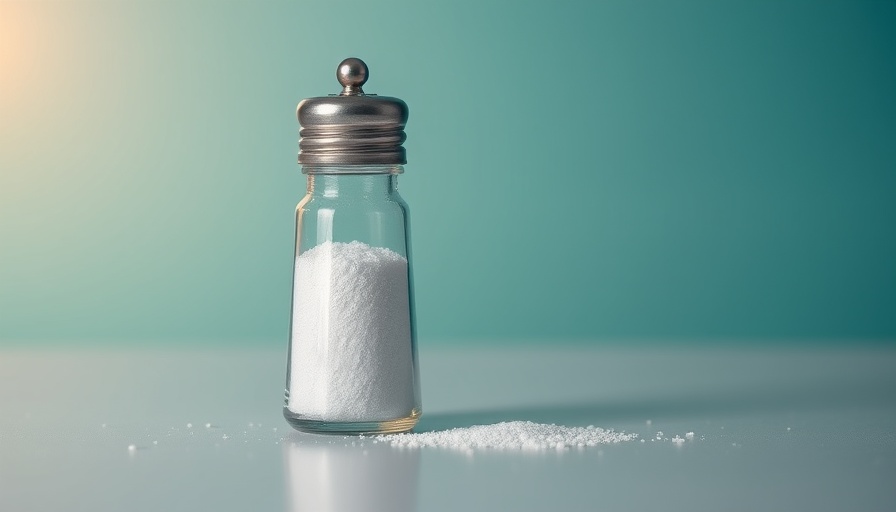
Unpacking the Connection: Salt Intake and Liver Health
Recent studies suggest a surprising link between high salt intake and an increased risk of metabolic dysfunction and liver diseases, particularly Metabolic-Associated Steatotic Liver Disease (MASLD). Understanding this connection is crucial for suburban professionals who often face busy lifestyles that may lead to unhealthy eating habits.
What Is MASLD and Why Should You Care?
Metabolic-Associated Steatotic Liver Disease is a condition characterized by fat accumulation in the liver. It is not just a concern for heavy drinkers; non-alcoholic versions are increasingly common, especially in individuals with poor dietary habits. For professionals aged 25-60, who often juggle demanding careers and family life, being aware of MASLD can inform dietary choices that impact overall health.
Salt’s Silent Role in Health Risks
Excessive salt consumption might not only elevate blood pressure but could also foster a precondition for MASLD. Various health organizations recommend keeping daily salt intake below 2,300 mg to mitigate health risks. However, many professionals unknowingly exceed this limit, especially when consuming processed and ready-made meals, which are often laden with added sodium.
Lifestyle Choices: The Impact on Your Liver
For the modern professional, the easy accessibility of fast food and the prevalence of dining out can contribute to a sodium-rich diet. But this lifestyle comes at a cost. The potential development of MASLD due to high salt intake is a wake-up call. By making conscious dietary choices—opting for fresh ingredients and cooking at home—individuals can safeguard not only their liver health but also enhance their overall well-being.
Future of Health: Trends in Nutrition
As individuals seek to improve their quality of life, understanding the science behind nutrition becomes critical. Recent medical trends indicate that awareness of dietary patterns, particularly regarding sodium intake, can mitigate the risk of chronic diseases. Suburban professionals might find it beneficial to monitor their salt consumption and seek out resources to help create balanced meals. Leveraging online meal planning tools or apps can simplify the journey toward healthier living.
Actionable Insights: Steps to Take Today
Evaluate your current salt intake by reading food labels, particularly on packaged foods. Aim to limit processed foods, and incorporate more fresh vegetables and whole grains into your diet. A practical step could be experimenting with herbs and spices to enhance flavor without relying on salt—this can invigorate your cooking while maintaining your health.
The Emotional Toll: Stress and Diet
For many, the connection between stress and dietary habits is real. The demands of a professional life can lead to comfort eating or reliance on quick, high-sodium foods. Recognizing this emotional cycle is vital; replacing unhealthy habits with mindful eating and stress-reduction techniques can profoundly benefit both mental and physical health.
Conclusion: A Healthier Future Begins with You
As suburban professionals, understanding the negative impacts of high salt intake and its associated health risks, such as MASLD, presents an opportunity to make informed choices. Embracing a healthier diet can lead to long-term benefits and a happier, more productive lifestyle. Start today; you have the power to influence your health and wellness for years to come. For more guidance on navigating health and wellness trends, consider connecting with local nutritionists or health coaches who can provide personalized insights based on current medical trends.
 Add Row
Add Row  Add
Add 




Write A Comment